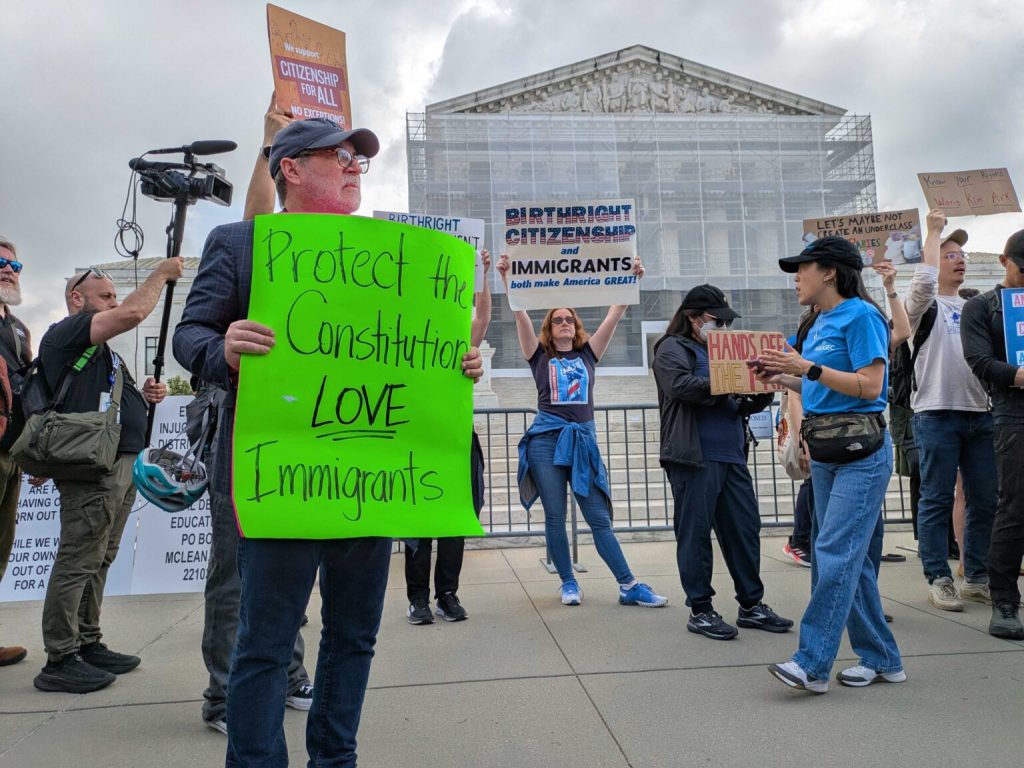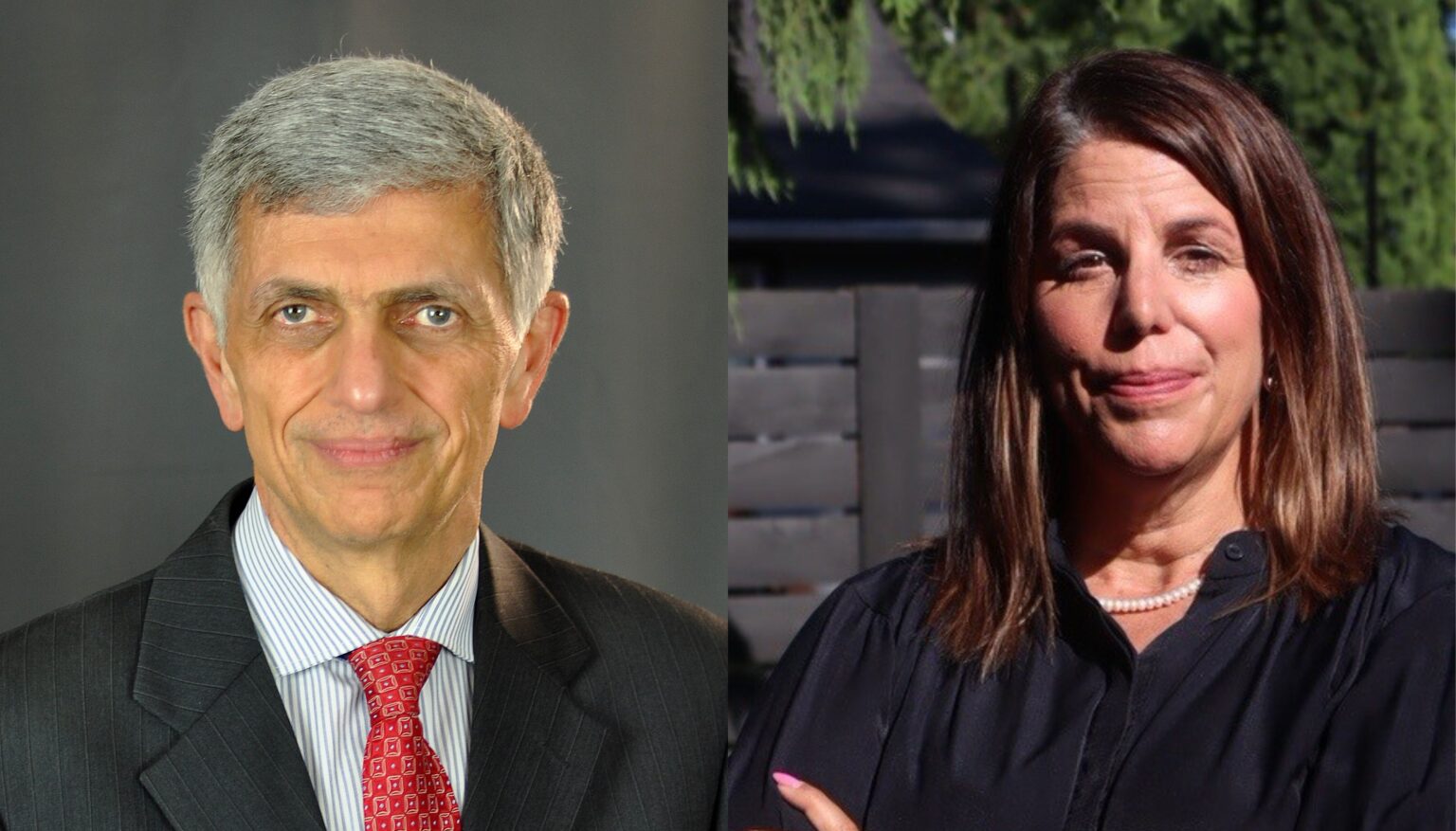Appeals court maintains nationwide block of birthright citizenship order
Published 6:49 am Friday, July 25, 2025

- Rev. Patrick Mahoney, director of the Christian Defense Coalition, joined demonstrators outside the U.S. Supreme Court on Thursday, May 15, 2025, to protest the Trump administration’s effort to strip birthright citizenship from the Constitution. (Ashley Murray/States Newsroom)
Washington, Oregon, Arizona, Illinois and two pregnant women sued the federal government
A federal appeals court on Wednesday agreed with a Seattle judge’s decision to universally block President Donald Trump’s executive order restricting birthright citizenship.
The appeals judges ruled 2-1 that Trump’s order, issued on Inauguration Day, violates the 14th Amendment to the U.S. Constitution, which states “all persons born or naturalized in the United States, and subject to the jurisdiction thereof, are citizens of the United States.”
“One power that the President was not granted, by Article II or by any other source, is the power to modify or change any clause of the United States Constitution,” Judge Ronald Gould, a Clinton appointee, wrote in his opinion.
Trending
Gould’s opinion, joined by Judge Michael Hawkins, sides with U.S. District Court Judge John Coughenour, who stopped Trump’s order with an indefinite preliminary injunction in February. Such orders block enforcement while the case proceeds through the courts.
Coughenour called Trump’s order “blatantly unconstitutional.” The lawsuit was brought by Washington, Oregon, Arizona, Illinois and two pregnant noncitizen women who feared their children could be born without citizenship in any country.
In a statement, Washington Attorney General Nick Brown applauded the appeals court ruling.
“The court agrees that the president cannot redefine what it means to be American with the stroke of a pen,” Brown said. “He cannot strip away the rights, liberties, and protections of children born in our country.”
The decision from the 9th U.S. Circuit Court of Appeals adds to the list of courts that have found Trump’s move unconstitutional and blocked enforcement of it. The ruling comes after the Department of Justice and Washington attorney general’s office argued the case in early June.
Since those arguments, the U.S. Supreme Court decided judges like Coughenour had overstepped their authority in blocking Trump’s order nationwide. The justices ruled nationwide injunctions should be limited to when necessary to “provide complete relief to each plaintiff.”
Trending
The high court’s decision left the door open for a checkerboard of states where birthright citizenship remained and others where it didn’t.
The justices didn’t take up the merits of Trump’s order.
Oregon Attorney General Dan Rayfield said in a statement that the state was proud to stand up for birthright citizenship and would continue to defend the rights of all Oregonians.
“Oregon challenged this executive order because we understood what was at stake,” Rayfield said. “It threatened to strip citizenship from children who are just as American as anyone else – kids growing up in our communities, attending our schools, and calling this country home. It was an attack not just on immigrant countries, but on the values we all share.”
Wednesday’s ruling is the second to confirm a complete block is necessary since the Supreme Court decision, after a New Hampshire federal judge certified a nationwide class action suit.
The Trump administration looks to define “subject to the jurisdiction thereof” as only covering people whose primary allegiance is to the United States. So people born to parents only here temporarily or without legal status wouldn’t qualify for citizenship at birth.
In 2022, about 153,000 babies across the country were born to two parents without legal immigration status, including 4,000 in Washington, according to the plaintiffs. The states have said they stand to lose federal funding through programs like Medicaid that otherwise could help these children if they were citizens.
Gould found this argument persuasive, justifying “complete relief” to block the order nationwide. He wrote that Trump’s birthright citizenship order would require states to overhaul their eligibility verification systems for social service programs.
“The preliminary injunction here merely prevents the Executive Branch from denying citizenship to individuals who are likely constitutionally entitled to citizenship,” Gould wrote. “Because, as the district court correctly concluded, the Executive Branch does not have a legitimate interest in violating the Constitution, the Executive Branch has not shown that either the public interest or the balance of equities tips in its favor.”
Judge Patrick Bumatay, a Trump appointee, disagreed, arguing the states lack standing to bring litigation over the order because their financial loss would be a “self-inflicted injury” if they choose to provide benefits to immigrants without legal status.
In his dissent, Bumatay didn’t address the issue of the injunction’s scope.
Washington State Standard is part of States Newsroom, a nonprofit news network supported by grants and a coalition of donors as a 501c(3) public charity. Washington State Standard maintains editorial independence. Contact Editor Bill Lucia for questions: info@washingtonstatestandard.com.




